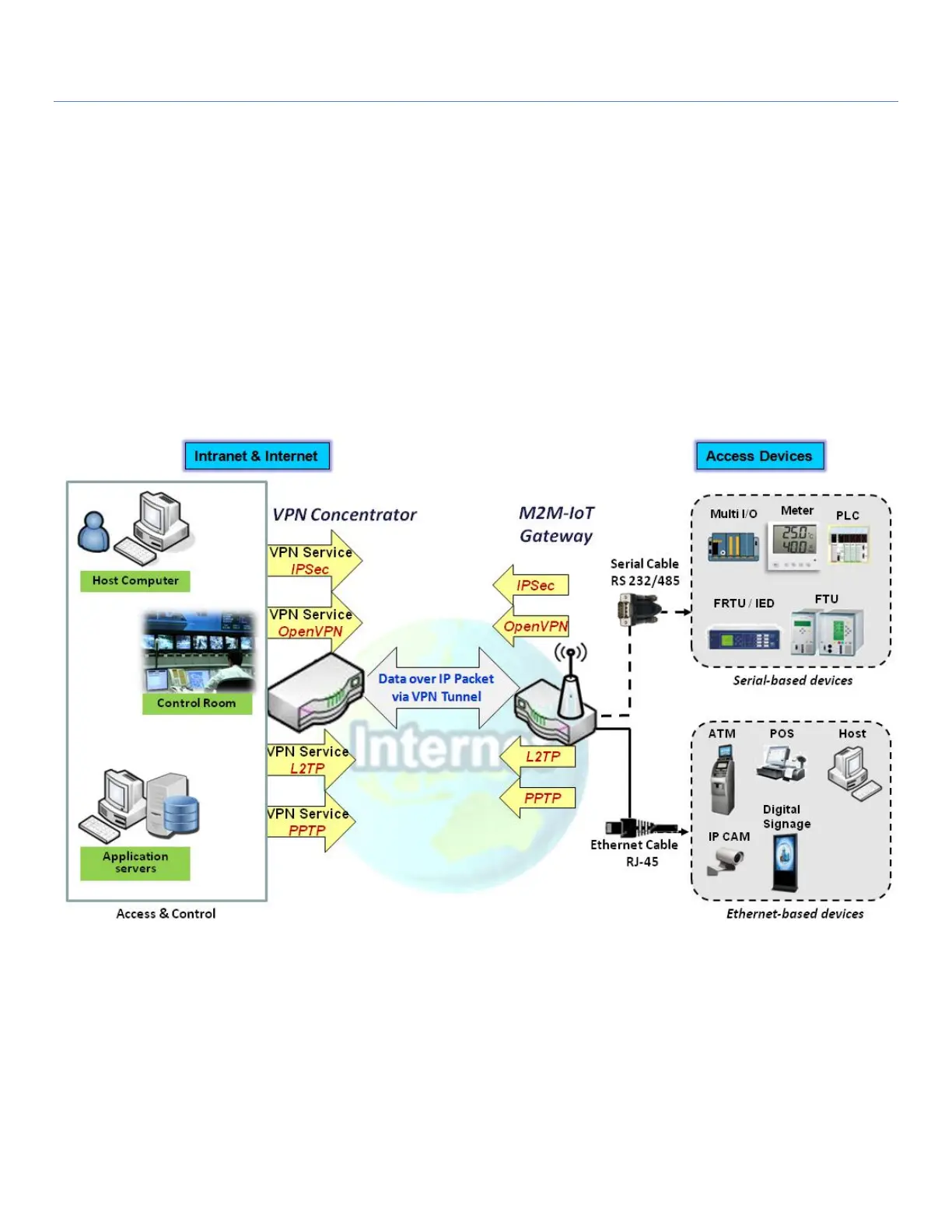EW50 Industrial LTE Cellular Gateway
160
Chapter 5 Security
5.1 VPN
A virtual private network (VPN) extends a private network across a public network, such as the Internet. It
enables a computer to send and receive data across shared or public networks as if it were directly connected
to the private network, while benefitting from the functionality, security and management policies of the
private network. This is done by establishing a virtual point-to-point connection through the use of dedicated
connections, encryption, or a combination of the two. The tunnel technology supports data confidentiality,
data origin authentication and data integrity of network information by utilizing encapsulation protocols,
encryption algorithms, and hashing algorithms.
The product series supports different tunneling technologies to establish secure tunnels between multiple
sites for data transferring, such as IPsec, OpenVPN, L2TP (over IPsec), PPTP and GRE. Besides, some advanced
functions, like Full Tunnel, Tunnel Failover, Tunnel Load Balance, NetBIOS over IPsec, NAT Traversal and
Dynamic VPN, are also supported.
